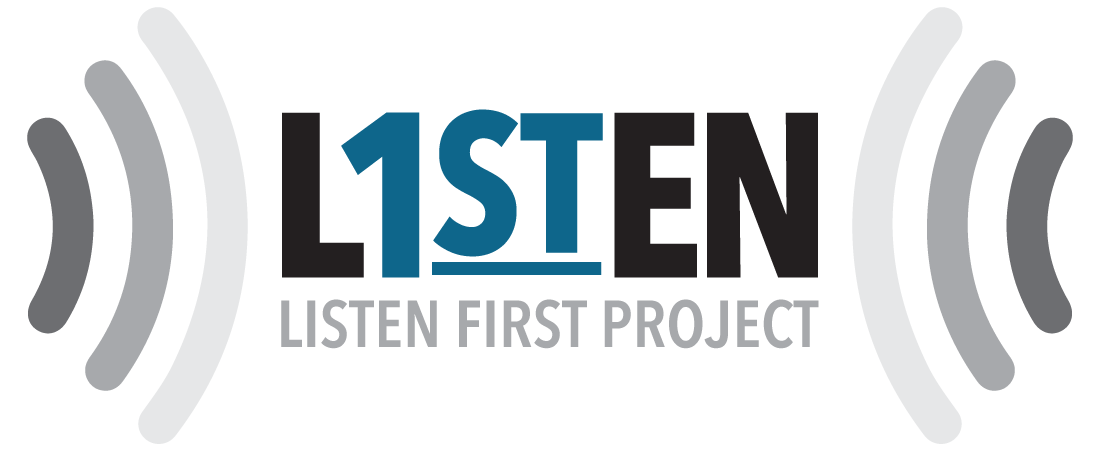“Let both sides explore what problems unite us instead of belaboring those problems which divide us.”
There appears to be a crisis of civility in America. And while it is easy to place the blame on our current political atmosphere, surveys show that incivility experiences go beyond Washington. According to the State of Civility survey conducted by Weber Shandwick, Powell Tate, and KRC Research, Americans reported experiencing incivility across several domains – the workplace, on the road, in school, and online. Their data also suggest that while experiences of incivility have not universally increased, most believe that America is losing its status as a civil nation. So what are we to do?
Answers vary, but the majority have two things in common. First, there is a call for less talking and more listening. At the Listen First Project, we agree with this recommendation; we believe that in order to show respect for others, we must first listen to their opinions and have a genuine desire to understand multiple points of view. We also note, however, that while a call for more listening is generally positive, detailed recommendations on exactly how we should listen are missing.
A primary recommendation for how to listen toward a more civil society is found in the second common thread among recent calls for increasing civility, the need to recognize differences. Listen First Project fully embraces the underlying motivation of this perspective: to understand others we first have to realize that each of us is coming from a unique perspective, one that may not be reconcilable with other perspectives, at least not completely. In other words, being civil starts with listening for what divides us in the first place.
The focus on difference makes sense as a practical matter. Why else would we need to argue for the merits of civility if we all agreed? It stands to reason that where there is little disagreement, there is likely little need to focus attention on making things more civil. As the excerpt from John F. Kennedy’s inaugural address reminds us, however, focusing on what unites us may prove to be a more successful starting place.
If we spend an inordinate amount of time focusing on what separates us, we foster a sense that we are more different than we actually are. More generally, the risk we take when teaching others to listen for difference is to focus on only one tiny part of the equation. What if, instead, we stressed the importance of listening for similarity?
The Listen First Project offers a set of conversational guidelines, and we believe a crucial part of any Listen First Conversation is to listen for similarity. Listening for similarity means to focus attention on what unites us rather than on what divides us. It means to explore areas of mutual agreement before you start to hone in on where the dividing lines begin. Conversational partners should come to the table ready to first outline where there is common ground and to build the rest of the dialogue around these points of agreement.
By starting with where we agree, our conversations are more likely to stay on a course toward mutual understanding and respect than if we start with areas of disagreement. Coming to a conversation with the mindset that “you want to raise taxes, and I want to lower them” not only sets a false dichotomy, but it also sets a combative tone. Coming to a conversation with the mindset that “we both want what is best for the American public” sets a collaborative tone – it turns a “you vs. me” mentality into a “what can we do to improve things” frame of mind.
